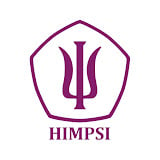More Than Mindfulness: Why Self-Efficacy Still Matters Most in Inclusive Teaching Stress
Abstract
Keywords
Full Text:
PDFReferences
Asari, U. A. Y. (2023). Learning Agility Guru Pendamping Khusus ABK (Studi Fenomenologi: Sekolah Menengah Al Firdaus). Jurnal ISLAMIKA, 5(2), 30–45.
Bandura, A. (1997). Self-efficacy: The exercise of control. W. H. Freeman and Company.
Emerson, L.-M., Leyland, A., Hudson, K., Rowse, G., Hanley, P., & Hugh-Jones, S. (2017). Teaching mindfulness to teachers: A systematic review and narrative synthesis. Mindfulness, 8(5), 1136–1149. https://doi.org/10.1007/s12671-017-0691-4
Fabbro, A., Fabbro, F., Capurso, V., D’Antoni, F., & Crescentini, C. (2020). Effects of mindfulness training on school teachers’ self-reported personality traits as well as stress and burnout levels. Perceptual and Motor Skills, 127(3), 515–532. https://doi.org/10.1177/0031512520908708
Fimian, M. J. (1984). The development of an instrument to measure occupational stress in teachers: The Teacher Stress Inventory. Journal of Occupational Psychology, 57(4), 277–293. https://doi.org/10.1111/j.2044-8325.1984.tb00169
Flook, L., Goldberg, S. B., Pinger, L., & Davidson, R. J. (2015). Promoting prosocial behavior and self-regulatory skills in preschool children through a mindfulness-based kindness curriculum. Developmental Psychology, 51(1), 44–51. https://doi.org/10.1037/a0038256
Grasmann, J., Almenräder, F., Voracek, M., & Tran, U. S. (2023). Only small effects of mindfulness-based interventions on biomarker levels of inflammation and stress: A preregistered systematic review and two three-level meta-analyses. International Journal of Molecular Sciences, 24(5). https://doi.org/10.3390/ijms24054445
Hanifah, D. S., Haer, A. B., Widuri, S., & Santoso, M. B. (2022). Tantangan anak berkebutuhan khusus (ABK) dalam menjalani pendidikan inklusi di tingkat sekolah dasar. Jurnal Penelitian dan Pengabdian Kepada Masyarakat (JPPM), 2(3), 473. https://doi.org/10.24198/jppm.v2i3.37833
Hasanah, N., & Laily, N. (2020). Self-efficacy dan kepuasan kerja pada guru taman kanak-kanak (TK). Efektor, 7(1), 80–89. https://doi.org/10.29407/e.v7i1.14398
Islamiyah, A., Sismawati, M., & Kaaloeti, D. V. S. (2020). Pengaruh psikoedukasi mindfulness singkat pada kemampuan regulasi emosi mahasiswa. Jurnal Ilmiah Psikologi Terapan, 8(1), 89. https://doi.org/10.22219/jipt.v8i1.9444
Jennings, P. A., Frank, J. L., Snowberg, K. E., Coccia, M. A., & Greenberg, M. T. (2013). Improving classroom learning environments by cultivating awareness and resilience in education (CARE): Results of a randomized controlled trial. School Psychology Quarterly, 28(4), 374–390. https://doi.org/10.1037/spq0000035
Kazanopoulos, S., Tejada, E., & Basogain, X. (2022). The self-efficacy of special and general education teachers in implementing inclusive education in Greek secondary education. Education Sciences, 12(6), 383. https://doi.org/10.3390/educsci12060383
Kusmiran, Y., Agustin, M., & Dahlan, T. H. (2024). Peran mindfulness teaching dalam mengurangi stres dan meningkatkan kualitas pengajaran guru PAUD. Aulad: Journal on Early Childhood, 7(3), 709–722. https://doi.org/10.31004/aulad.v7i3.777
Luis Baun, A., Hatmoko, T. L., & Laka, L. (2023). Peran kepedulian guru dan keyakinan agama peserta didik untuk meningkatkan self-efficacy akademik. Jurnal Moral Kemasyarakatan, 8(2), 168–178. https://doi.org/10.21067/jmk.v8i2.8537
Mahardhani, F. O., Ramadhani, A. N., Isnanti, R. M., Chasanah, T. N., & Praptomojati, A. (2020). Pelatihan strategi koping fokus emosi untuk menurunkan stres akademik pada mahasiswa. Gadjah Mada Journal of Professional Psychology, 6(1), 60. https://doi.org/10.22146/gamajpp.55253
Mudrikah, S., Kusmuriyanto, K., & Widodo, W. (2022). Pengaruh technostress dan computer self-efficacy terhadap kinerja guru selama pembelajaran daring. EQUILIBRIUM: Jurnal Ilmiah Ekonomi dan Pembelajarannya, 10(2), 96. https://doi.org/10.25273/equilibrium.v10i2.11073
Nadyastuti, S. C., Mularsih, H., & Tiatri, S. (2021). Grand 5 dan permasalahan guru. Jurnal Muara Ilmu Sosial, Humaniora,Dan Seni, 5(2), 475–484.
Neumann, M. M., & Tillott, S. (2022). Why should teachers cultivate resilience through mindfulness? Journal of Psychologists and Counsellors in Schools, 32(1), 3–14. https://doi.org/10.1017/jgc.2021.23
Pratscher, S. D., Wood, P. K., King, L. A., & Bettencourt, B. A. (2019). Interpersonal mindfulness: Scale development and initial construct validation. Mindfulness, 10(6), 1044–1061. https://doi.org/10.1007/s12671-018-1057-2
Susanto, V., & Hartini, N. (2024). Group Counseling About Coping Stress Strategy in Special Needs Teachers Konseling Kelompok terkait Strategi Koping Stres Pada Guru Anak Berkebutuhan Khusus. Maret, 13(1), 50–56. http://dx.doi.org/10.30872/psikostudia.v13i1
Purna, R. S. (2020). Gambaran Regulasi Emosi Guru di Kota Padang. Humanitas (Jurnal Psikologi), 4(2), 149–162. https://doi.org/10.28932/humanitas.v4i2.2410
Saputro, U. G., Susilo, H., & Ekawati, R. (2023). Analisis Penerapan Mindfulness dalam Pembelajaran Siswa Sekolah Dasar. JIIP - Jurnal Ilmiah Ilmu Pendidikan, 6(2), 1214–1219. https://doi.org/10.54371/jiip.v6i2.1630
Song, X., Zheng, M., Zhao, H., Yang, T., Ge, X., Li, H., & Lou, T. (2020). Effects of a four-day mindfulness intervention on teachers’ stress and affect: A pilot study in Eastern China. Frontiers in Psychology, 11, 1298. https://doi.org/10.3389/fpsyg.2020.01298
Sperling, E. L., Hulett, J. M., Sherwin, L. A. B., Thompson, S., & Bettencourt, B. A. (2023). The effect of mindfulness interventions on stress in medical students: A systematic review and meta-analysis. PLoS ONE, 18(10), 1–24. https://doi.org/10.1371/journal.pone.0286387
Uluwiyya, R., Sriati, A., & Kosim, K. (2024). Gambaran tingkat stres kerja guru di sekolah inklusi. Jurnal Riset Kesehatan Poltekkes Depkes Bandung, 17(1), 20–29. https://doi.org/10.34011/juriskesbdg.v17i1.2683
Nisa, Uswatun, & Wati, Vera. (2022). Dilema Guru PAUD Inklusi Terhadap Kompleksitas ABK: Antara Tantangan dan Keniscayaan. Kiddo: Jurnal Pendidikan Islam Anak Usia Dini, 3(2), 16–27. https://doi.org/10.19105/kiddo.v3i2.6603
Wahyuni, E. P., Ardianto, H., Dharmatanna, S., Burmansah, B., Seneru, W., Kasrah, R., & Ismoyo, T. (2024). A Mindful Character Development: Mindfulness and Self-Efficacy Enhances Emotional Regulation of High School Students. International Journal of Science and Applied Science: Conference Series, 8(2), 162. https://doi.org/10.20961/ijsascs.v8i2.95131
Wang, N. (2022). EFL teachers’ mindfulness and emotion regulation in language context. Frontiers in Psychology, 13, 877108. https://doi.org/10.3389/fpsyg.2022.877108
Yuliana, A. R., Safitri, W., & Ardiyanti, Y. (2022). Penerapan terapi mindfulness dalam menurunkan tingkat stres mahasiswa tingkat akhir. Jurnal Keperawatan dan Kesehatan Masyarakat Cendekia Utama, 11(2), 154. https://doi.org/10.31596/jcu.v11i2.1117
DOI: http://dx.doi.org/10.22441/biopsikososial.v9i2.36106
Refbacks
- There are currently no refbacks.
Copyright (c) 2025 Biopsikososial: Jurnal Ilmiah Psikologi Fakultas Psikologi Universitas Mercubuana Jakarta
JBUMBand its articles is licensed under a Creative Commons Attribution-ShareAlike 4.0 International License.
Tim Editorial Office
JBUMB
Fakultas Psikologi, Universitas Mercu Buana
Jalan Meruya Selatan No. 1, Kembangan, Jakarta Barat, 11650, Indonesia
Phone: +6281318855243
Email: [email protected]
Website: https://publikasi.mercubuana.ac.id/index.php/biopsikososial/index

















